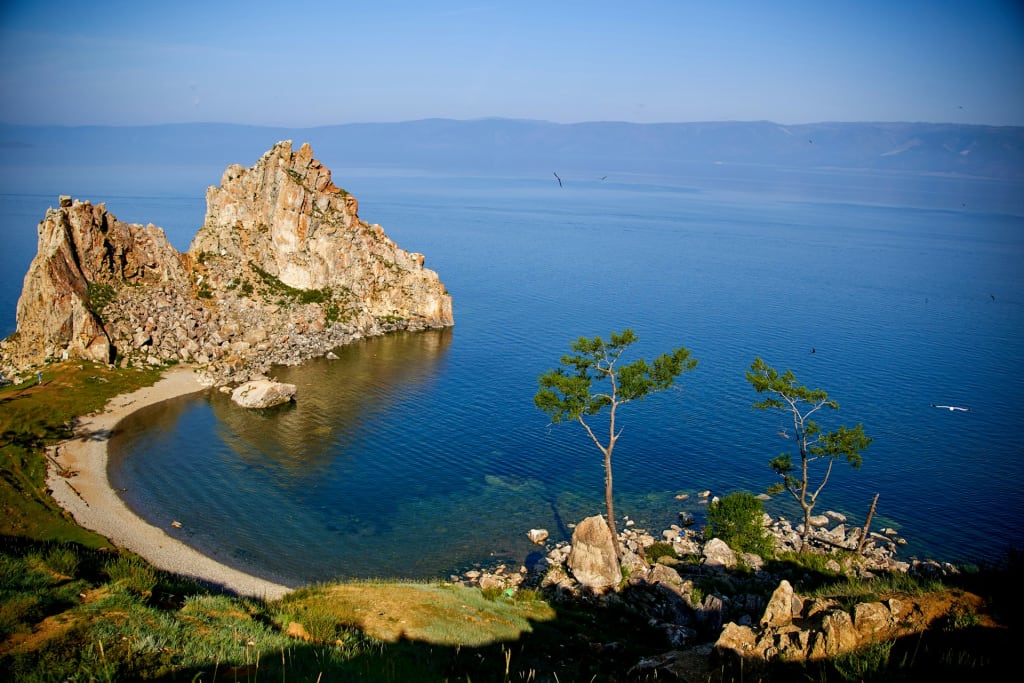The Mystery of the Deepest Lake in the World
The Mighty Lake Baikal: A Wonder of Nature.

Nestled in the heart of Asia is a lake that contains one-fifth of the world's liquid freshwater. It's more than all the five Great Lakes put together. Even if all the rivers on our planet suddenly change their direction and set on a mission to drain this lake, it would take them a whole year to finish the job. We are talking about the deepest lake in the world, Lake Baikal.
If you decide to go all the way down to its deepest point, prepare for a journey of almost 5,400 ft. The descent takes several hours, but the rift floor of the lake is way deeper, between 5 to 7 miles beneath the surface. It means it could be even further down than the Challenger Deep, which is the deepest known place on Earth. The amount of water it has would be enough for everyone on Earth to have something to drink for up to 50 years. This mighty giant of a lake replenishes its water completely every 383 years.
Lake Baikal has a great delivery crew of over 300 rivers and streams bringing their waters right in, and only one river flows out of Baikal - the Angara, which is headed straight for the Arctic Ocean. Baikal isn't only the deepest but also the oldest existing freshwater lake in the world. It formed at least 25 million years ago. It all began when the Earth's crust decided to play Tetris and created the lake and the surrounding mountains. At some point, Baikal must have been just a humble riverbed, but then tremors and fractures shook the earth, and the distance between the shores got bigger. Water levels rose thanks to the melting glaciers. Then several lakes formed and later merged into one. Baikal is one of around 20 lakes in the world that are older than 1 million years, and since it wasn't disturbed by glacial periods, it's a perfect research ground for scientists. Its deep-drilled core sediments can tell a lot about the climate of our planet in different periods.
Lake Baikal is a unique lake in Russia, which is still growing in size due to its location in a rift basin with 2,000 seismic tremors per year. It has all the potential to become an ocean. The lake is home to over 2,500 animals and 1,000 plant varieties, and around half of them are unique. The Baikal seal, the only true freshwater seal in the world, is one of the most interesting animals living in the lake. It has cute eyes that help them follow their favorite fish underwater. The seals mostly hang out in the north and central areas of the lake but move south in the winter when the lake gets covered with ice.
Since at least 1969, Lake Baikal has had some mysterious ice rings pop up randomly here and there. At some point, they got so big that the astronauts even spotted them from space. The rings usually appear in late April but can be there in January or May. Scientists couldn't crack the code on how these rings form. For a while, they had all sorts of theories, and the most popular involved methane gas bubbles from the lake's depths. But then scientists noticed that some of the rings were in shallower waters where gas emissions don't happen.
An international team of scientists decided to solve the mystery. They traveled to Lake Baikal, drilled holes in the ice, and dropped sensors into the water. In 2016, when they started the research, they heard that two vans had gotten stuck in the mysterious ice rings. Once they had analyzed the data from the sensors, it turned out that the secret behind the rings was warm eddies flowing clockwise under its ice cover. The currents were less intense in the center of the eddies, so the ice above them was thicker at the edges.
The waters of the lake are so clear that you can see some extremely deep depths. Lake Baikal is not only a wonder of nature but also a source of scientific discoveries. It's a place where scientists can study the climate, geology, and biology of our planet and where visitors can marvel at the beauty and diversity of nature.
About the Creator
Enjoyed the story? Support the Creator.
Subscribe for free to receive all their stories in your feed. You could also pledge your support or give them a one-off tip, letting them know you appreciate their work.





Comments
Test is not accepting comments at the moment
Want to show your support? Send them a one-off tip.